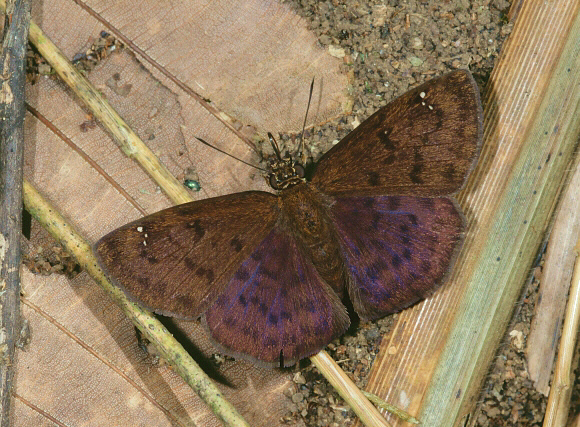
Introduction
The Pyrginae, popularly known as Flats or Spreadwings, are a cosmopolitan subfamily distributed across temperate and tropical habitats throughout the world. In the Americas there are 990 species, of which about 580 are assigned to the tribe Pyrgini.
The genus Carrhenes comprises of 13 known species which are variously distributed from Mexico to Bolivia. They vary greatly in appearance, e.g. bamba has extensive white markings. Others such as fuscescens, callipetes and santes are more unicolorous but can be recognised as members of the genus from the distinctive pattern of dark spots on the hindwings.
Carrhenes santes is recorded from Peru and Bolivia, and probably also occurs in the upper Amazonian areas of Brazil and Ecuador.
Habitats
This species was photographed at an altitude of about 550m in primary rainforest on the Rio Alto Madre de Dios, Peru.
Lifecycle
Pyrgine butterflies typically lay their eggs singly on either the upperside or underside of leaves. The larvae are usually dull green or brownish, with thin longitudinal lines along the back and sides, and with black shiny heads. Most feed on low growing herbaceous plants, but a small percentage feed on the leaves of bushes or trees. The pupae are usually dark and smooth, with the wing cases in a contrasting tone or colour. They are normally formed within silken tents formed by spinning together the leaves of the foodplant.
Adult behaviour
The butterfly was seen in the company of a group of Echydna punctata, feeding at peccary urine along a dark narrow forest trail.
